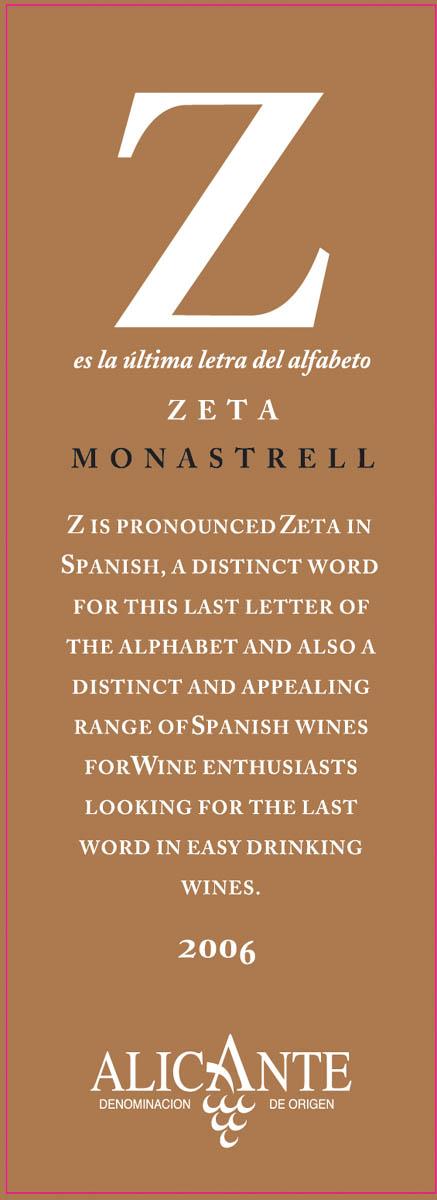2006 Alicante Mourvedre
Z Zeta is an exquisite red wine crafted from the Mourvèdre grape, hailing from the esteemed Alicante region. This vintage from 2006 showcases a captivating deep garnet color, hinting at its splendid evolution over the years. On the palate, this wine reveals a full-bodied silhouette, supported by bright acidity that invigorates each sip. The rich fruit intensity offers a delightful medley of blackberry and plum, complemented by subtle notes of spice and earthy undertones. The tannins are firm yet well-integrated, adding a structured backbone to the wine while maintaining an overall approachable character. This delightful offering is perfectly dry, making it an ideal companion for hearty dishes or a cozy evening by the fire. Z Zeta is a true testament to the unique terroir of Alicante, showcasing the remarkable potential of Mourvèdre in this region.
Z Zeta is an exquisite red wine crafted from the Mourvèdre grape, hailing from the esteemed Alicante region. This vintage from 2006 showcases a captivating deep garnet color, hinting at its splendid evolution over the years. On the palate, this wine reveals a full-bodied silhouette, supported by bright acidity that invigorates each sip. The rich fruit intensity offers a delightful medley of blackberry and plum, complemented by subtle notes of spice and earthy undertones. The tannins are firm yet well-integrated, adding a structured backbone to the wine while maintaining an overall approachable character. This delightful offering is perfectly dry, making it an ideal companion for hearty dishes or a cozy evening by the fire. Z Zeta is a true testament to the unique terroir of Alicante, showcasing the remarkable potential of Mourvèdre in this region.




